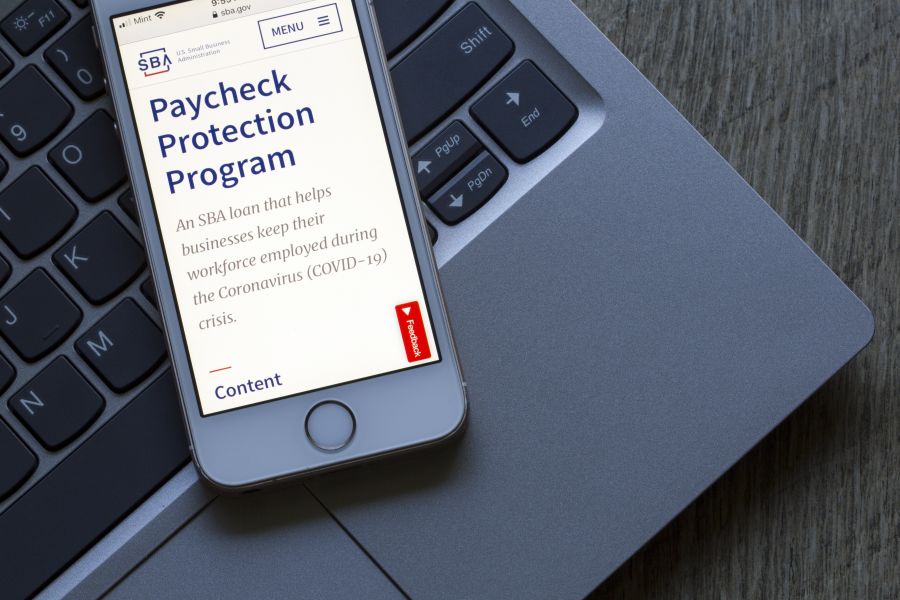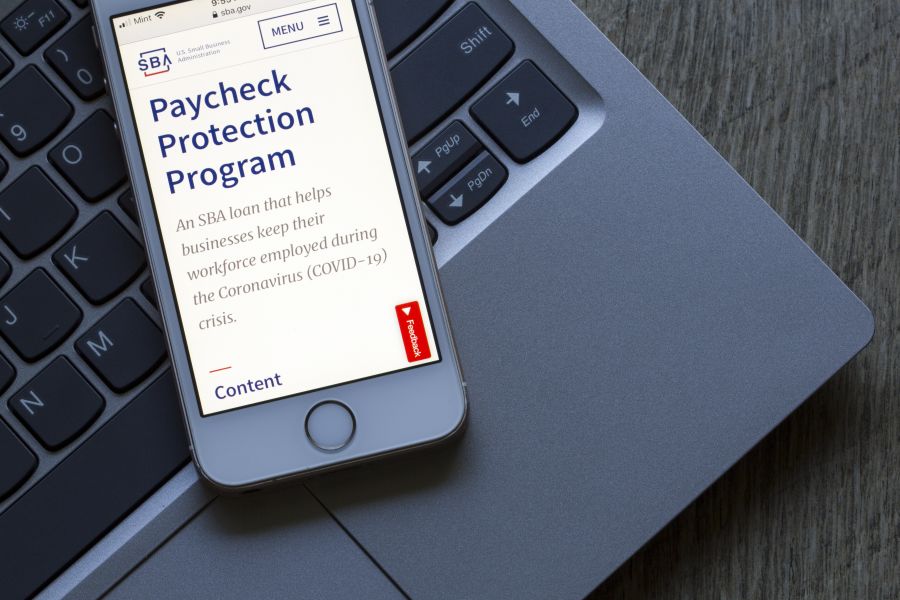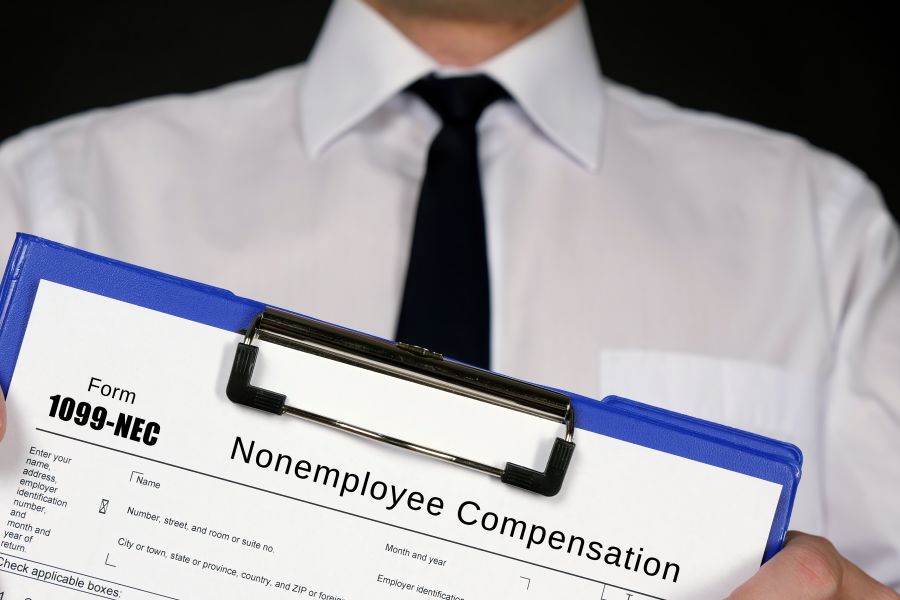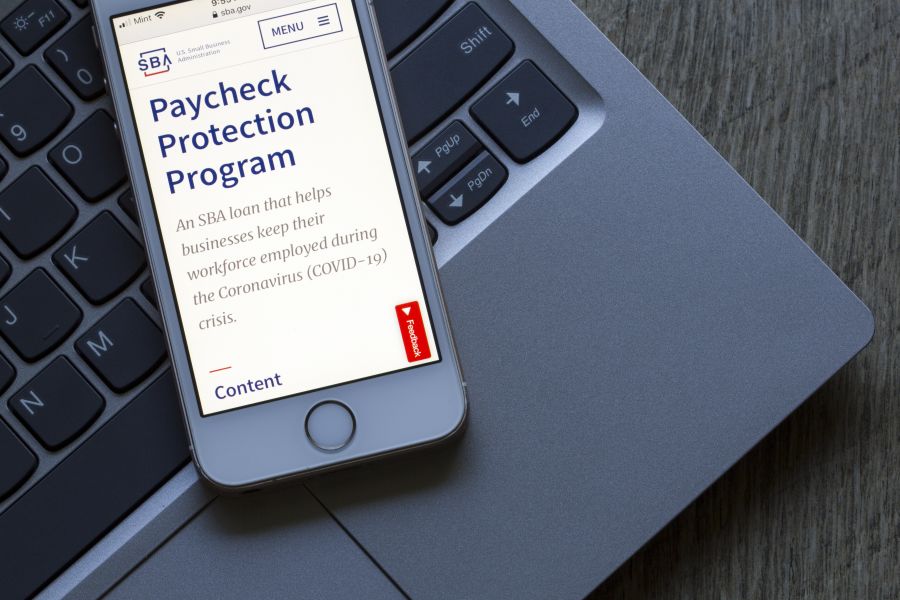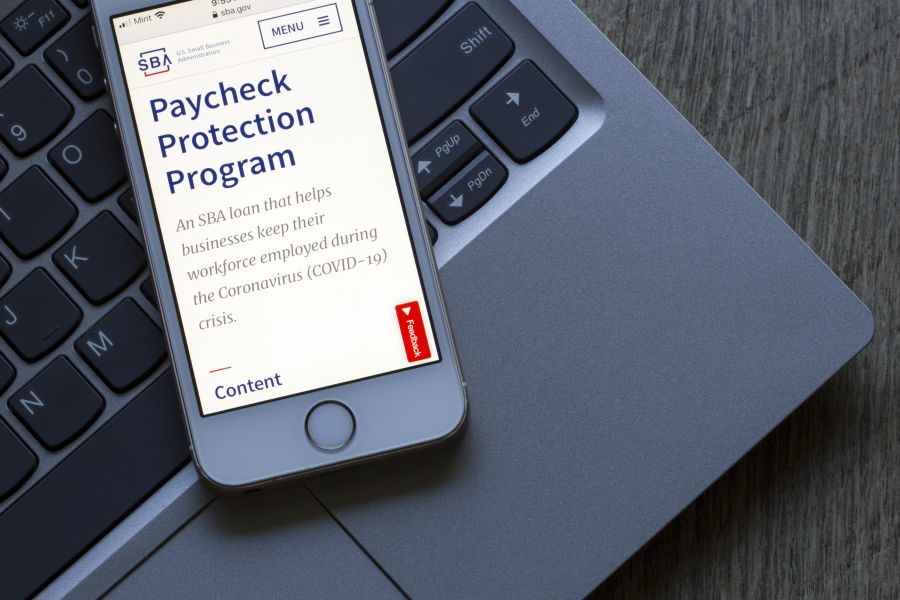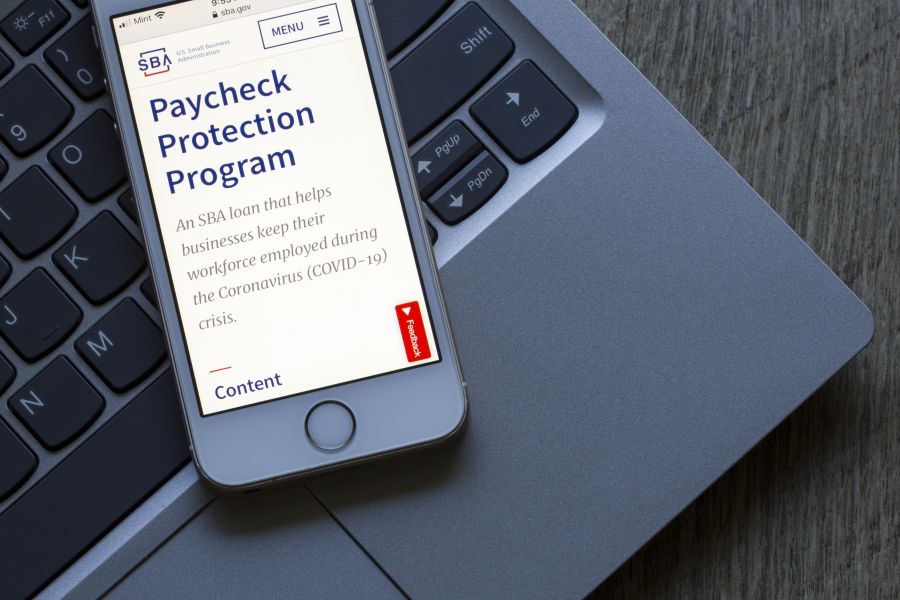COVID-19 has shut down many businesses, causing widespread furloughs and layoffs. Fortunately, employers that keep workers on their payrolls are eligible for a refundable Employee Retention Tax Credit (ERTC), which was extended and enhanced in the latest law. Background on the credit The CARES Act, enacted in March of 2020, created the ERTC. The credit: Equaled 50% of qualified employee wages paid by an eligible employer in an applicable 2020 calendar quarter, Was subject to an overall wage cap of $10,000 per eligible employee, and Was available to eligible large and small employers. The Consolidated Appropriations Act (CAA), enacted December 27, 2020, extends and greatly enhances the ERTC. Under the CARES Act rules, the credit only covered wages paid between March 13, 2020, and December 31, 2020. The...

A 1/13/2021 U.S. Treasury Department Press Release reported that the SBA is re-opening the Paycheck Protection Program (PPP) loan portal: to small lenders on 1/15/2021, and to all lenders on 1/19/2021. Background On 12/27/2020, the Consolidated Appropriations Act, 2021 (CAA 2021) was signed into law. Containing extensions and expansions of the PPP, it provides additional funding for what has been a popular provision with many small businesses included in the Coronavirus Aid, Relief and Economic Security (CARES) Act . . . allowing eligible employers to obtain forgivable loans for certain payroll and non-payroll purposes. Important changes from the CAA include: authorizing an additional $284 billion towards the PPP, extending the PPP to 3/31/2021, and allowing for Second Draw loans for certain smaller businesses that initially received...
A Procedural Notice has been released by the SBA to it's employees, as well as PPP lenders related to First Draw PPP Loan increases. Under the Economic Aid Act (EAA) in the Consolidated Apportionment Act (CAA 2021), certain borrowers may request an increase under certain conditions: First Draw Paycheck Protection Program Loan Increases After Enactment of the Economic Aid Act, 1/13/2021 SBA Procedural Notice Control No. 5000-20076 Increase to a First Draw PPP Loan The Economic Aid Act (EAA) permitted certain borrowers to re-apply or request an increase to a First Draw PPP Loan approved on or before 8/8/2020. In general, increases in the loan amount: may not exceed the maximum loan amount the borrower is entitled to under PPP rules, and may not exceed a total of...
In IRS Tax Tip 2020-80, the IRS explained new Form 1099-NEC, Nonemployee Compensation for business taxpayers who pay or receive nonemployee compensation. Starting in tax year 2020, payers must complete this form to report any payment of $600 or more to a payee. Generally, payers must file Form 1099-NEC by January 31. For 2020 tax returns, the due date is February 1, 2021. There is no automatic 30-day extension to file Form 1099-NEC. However, an extension to file may be available under certain hardship conditions. Nonemployee compensation may be subject to backup withholding if a payee has not provided a taxpayer identification number to the payer or the IRS notifies the payer that the TIN provided was incorrect PDF. A TIN can be one of the following numbers: Social Security Employer identification Individual...
In a Treasury Department Press Release dated 1/8/2021, the Treasury Department and Small Business Administration (SBA) have announced that the Paycheck Protection Program (PPP) will reopen the week of January 11. To promote access to capital: initially, only community financial institutions will be able to make First Draw PPP Loans on 1/11/2021, and Second Draw PPP Loans on 1/13/2021. All participating lenders will be able to participate in the PPP shortly thereafter. Interim Final Rules The SBA and Treasury Department recently released Interim Final Rules and other guidance. See the following related posts: SBA Releases Guidance on PPP Extension and Expansion SBA Releases Interim Final Rules Regarding PPP Second Draw Loans Additional Guidance: Top-Line Overviews The SBA also released a Top-line Overview of First Draw PPP and a Top-line Overview of Second Draw PPP. The Top-line Overview...
The Treasury Department and Small Business Administration (SBA) have released Interim Final Rules (IFR) regarding the permission of "second draw loans" under the Paycheck Protection Program (PPP) recently authorized by the Consolidated Appropriations Act, 2021 (CAA 2021). BACKGROUND CARES Act The CARES Act provided the original legislation authorizing the Small Business Administration (SBA) to make loans to qualified businesses under certain circumstances. The provision established the Payroll Protection Program (PPP), which provides up to 24 weeks of cash-flow assistance through 100% federally guaranteed loans to eligible recipients for the purpose of maintaining payroll during the coronavirus (COVID-19) pandemic and to cover certain other expenses. Paycheck Protection Program Flexibility (PPPF) Act The Paycheck Protection Program Flexibility (PPPF) Act made significant modifications to the PPP, including: reducing the percentage of loan proceeds...
The Treasury Department and Small Business Administration (SBA) have released Interim Final Rules (IFR) regarding the recent extension and expansion of the Paycheck Protection Program (PPP) as authorized by the Consolidated Appropriations Act, 2021 (CAA 2021). BACKGROUND CARES Act The CARES Act provided the original legislation authorizing the Small Business Administration (SBA) to make loans to qualified businesses under certain circumstances. The provision established the Payroll Protection Program (PPP), which provides up to 24 weeks of cash-flow assistance through 100% federally guaranteed loans to eligible recipients for the purpose of maintaining payroll during the coronavirus (COVID-19) pandemic and to cover certain other expenses. Paycheck Protection Program Flexibility (PPPF) Act The Paycheck Protection Program Flexibility (PPPF) Act made significant modifications to the PPP, including: reducing the percentage of loan proceeds require...
In response to the ongoing Coronavirus Disease 2019 (COVID-19) pandemic, IRS Notice 2021-07 provides temporary relief for employers and employees using the automobile lease valuation rule to determine the value of an employee’s personal use of an employer provided automobile for purposes of income inclusion, employment tax, and reporting. Due solely to the COVID-19 pandemic, if certain requirements are satisfied, employers and employees that are using the automobile lease valuation rule may instead use the vehicle cents-per-mile valuation rule to determine the value of an employee’s personal use of an employer-provided automobile beginning as of March 13, 2020. For 2021, employers and employees may revert to the automobile lease valuation rule or continue using the vehicle cents-per-mile valuation rule provided certain requirements are met. GRANT OF RELIEF Due to...
The new COVID-19 relief law that was signed on December 27, 2020, contains a multitude of provisions that may affect you. Here are some of the highlights of the Consolidated Appropriations Act, which also contains two other laws: the COVID-related Tax Relief Act (COVIDTRA) and the Taxpayer Certainty and Disaster Tax Relief Act (TCDTR). Direct payments The law provides for direct payments (which it calls recovery rebates) of $600 per eligible individual ($1,200 for a married couple filing a joint tax return), plus $600 per qualifying child. The U.S. Treasury Department has already started making these payments via direct bank deposits or checks in the mail and will continue to do so in the coming weeks. The credit payment amount is phased out at a rate of $5...
The COVID-19 relief bill, signed into law on December 27, 2020, provides a further response from the federal government to the pandemic. It also contains numerous tax breaks for businesses. Here are some highlights of the Consolidated Appropriations Act of 2021 (CAA), which also includes other laws within it. Business meal deduction increased The new law includes a provision that removes the 50% limit on deducting business meals provided by restaurants and makes those meals fully deductible. As background, ordinary and necessary food and beverage expenses that are incurred while operating your business are generally deductible. However, for 2020 and earlier years, the deduction is limited to 50% of the allowable expenses. The new legislation adds an exception to the 50% limit for expenses of food or beverages provided by...
- 1
- 2
- 3
- 4
- 5
- 6
- 7
- 8
- 9
- 10
- 11
- 12
- 13
- 14
- 15
- 16
- 17
- 18
- 19
- 20
- 21
- 22
- 23
- 24
- 25
- 26
- 27
- 28
- 29
- 30
- 31
- 32
- 33
- 34
- 35
- 36
- 37
- 38
- 39
- 40
- 41
- 42
- 43
- 44
- 45
- 46
- 47
- 48
- 49
- 50
- 51
- 52
- 53
- 54
- 55
- 56
- 57
- 58
- 59
- 60
- 61
- 62
- 63
- 64
- 65
- 66
- 67
- 68
- 69
- 70
- 71
- 72
- 73
- 74
- 75
- 76
- 77
- 78
- 79
- 80
- 81
- 82
- 83
- 84
- 85
- 86
- 87
- 88
- 89
- 90
- 91
- 92
- 93
- 94
- 95
- 96
- 97
- 98
- 99
- 100
- 101
- 102
- 103
- 104
- 105
- 106
- 107
- 108
- 109
- 110
- 111
- 112
- 113
- 114
- 115
- 116
- 117
- 118
- 119
- 120
- 121
- 122
- 123
- 124
- 125
- 126
- 127
- 128
- 129
- 130
- 131
- 132
- 133
- 134
- 135
- 136
- 137
- 138
- 139
- 140
- 141
- 142
- 143
- 144
- 145
- 146
- 147
- 148
- 149
- 150
- 151



